Packaging plays a vital role in food transportation, quality, shelf-life, safety and security. Our goal is to ensure that the plastics and packaging in our stores leave as little a footprint as possible. We do this by following the classic hierarchical model of REDUCE, REUSE and RECYCLE:
Beyond our own in-house brands and store packaging, we are and will continue to actively engage our suppliers, national brands and distributors in our supply chain to make further progress on the above goals.
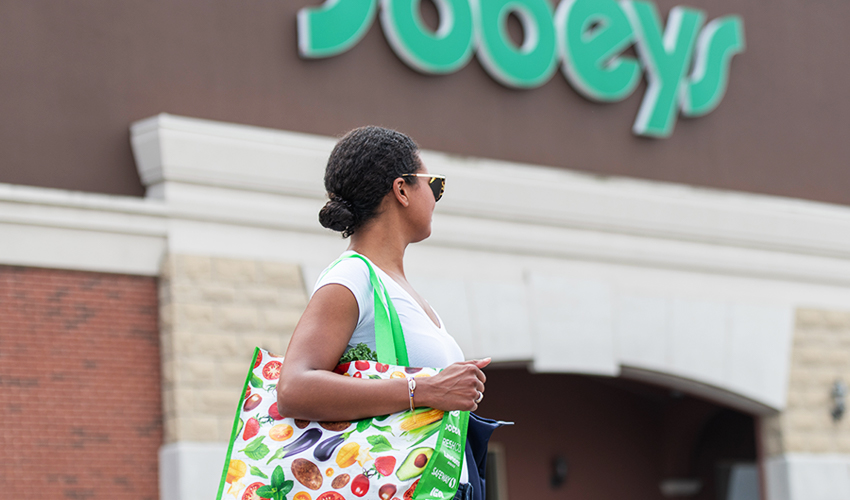
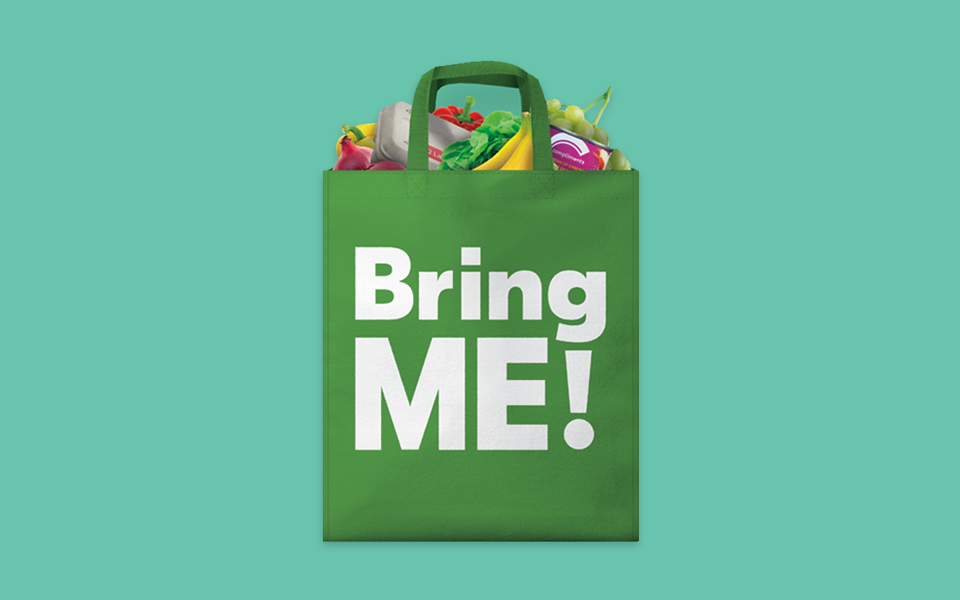
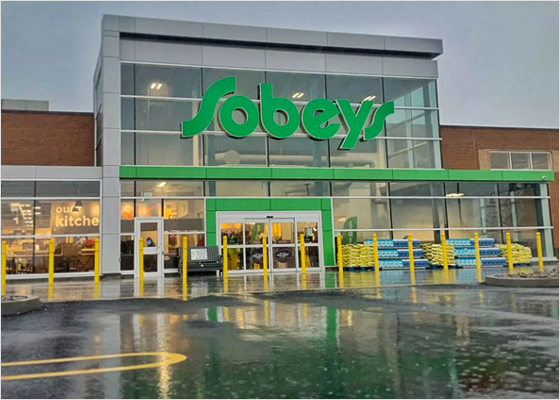
In Atlantic Canada, our partnership with Goodwood Plastic Products of Colchester County, Nova Scotia inspired two unique solutions to recycle plastic bags and other single-use plastics.
The first initiative, in partnership with Crombie REIT, was the development of a new asphalt pavement mixture. To create this plastic “pavement,” six million recycled plastic bags were paved into the Sobeys’ parking lot in Timberlea, Nova Scotia... Read More
Goodwood also provided recycled plastic lumber for Sobeys Inc.’s Ultimate Picnic Table, built by LakeCity Plastics of Dartmouth, Nova Scotia. LakeCity Plastics is a social enterprise that provides employment opportunities to youth and adults living with mental illness. Our Ultimate Picnic Table, which recycled 60,000 single-use plastic bags, was unveiled on the Halifax waterfront in December 2019. Along with Develop Nova Scotia and other Atlantic government partners, we are donating 11 other Ultimate Picnic Tables to waterfronts across Atlantic Canada. Read Less
In 2019, we partnered with Enactus Canada, who rallies the energy, ideas and passion of Canada’s best and brightest post-secondary students who see business as a way to address social issues and drive innovation. The Enactus Project Accelerator empowers students to develop viable solutions to a specific economic, social and/or environmental need... Read More
The Sobeys Carrying the Future Project Accelerator empowered Enactus teams to identify, create and deliver projects that demonstrate changes that grocery retailers and/or Canadian consumers can make to reduce avoidable plastic use. Enactus teams from post-secondary schools across the country applied, with six of those teams receiving a project grant to help launch their initiative. In total, we provided $50,000 to support the Project Accelerator. The six teams developed and implemented their projects and submitted Final Impact Reports for evaluation by a panel of our business leaders. Altogether, the students committed 37,000 volunteer hours to their team and project delivery, supported by 22 of our teammates who participated as advisors and judges. Read Less
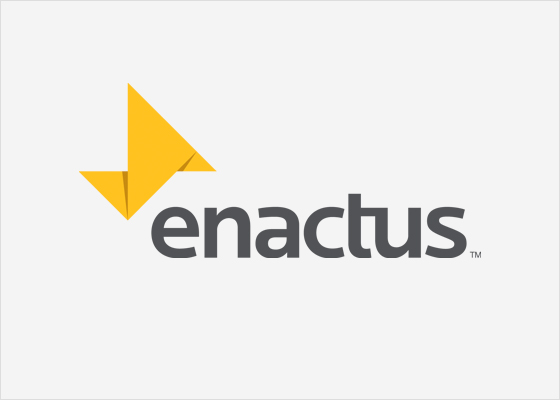
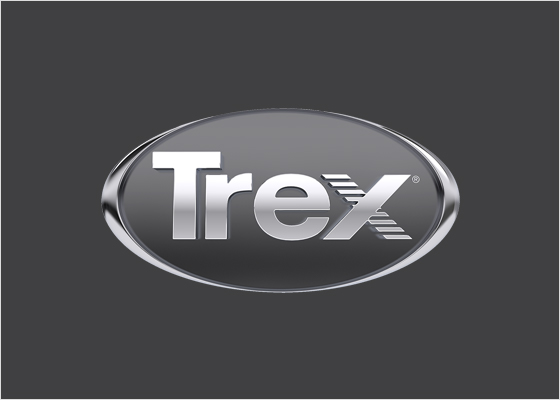
In Western Canada, our Safeway stores collect plastic grocery bags, stretch film and HDPE stock pharmacy pill bottles to return to our warehouses. There, we bale and recycle various plastics with for shipment to Trex, one of North America’s largest producers of wood-alternative products for decking and fences. Trex gives the plastic materials a new life in the form of fences, benches and decks by making eco-friendly outdoor living products that endure for 25+ years. This partnership helped us to divert 902,000 kilograms of plastic from landfill in fiscal 2020.
Plastic wrap plays an important role in our business, as it provides food protection and preservation in our transportation network and in stores. Plastic wrap can prevent food from perishing, extend its shelf-life, and maintain food quality. Our supplier, Malpack, developed a new technique to manufacture plastic wrap that is 50% thinner without compromising on quality and strength... Read More
After a successful testing phase, we have fully transitioned to the use of thinner plastic wrap in our distribution centres. In fiscal 2020, we will avoid the use of 168,500 kilograms of plastic wrap in our operations due to this change. Read Less
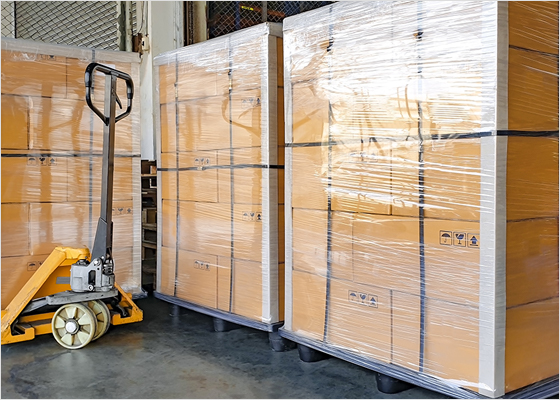
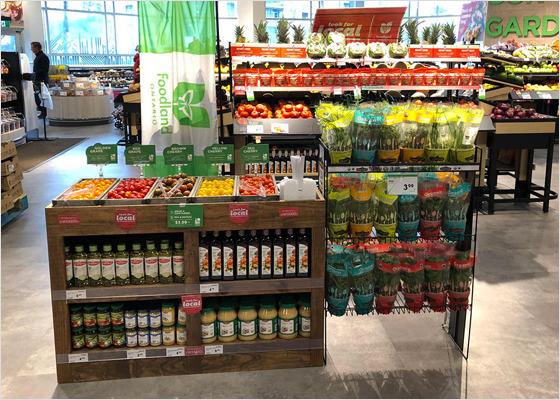
Our suppliers are keen partners on our journey to reduce plastics. Here are a few examples of how our suppliers are also providing more sustainable packaging options:.. Read More
Meadow Creek, an Alberta meat supplier, had a vision for packaging their sausages in a more sustainable way. By packing them in vacuum-sealed bags rather than the customary Styrofoam tray, soaker pad and plastic wrap, Meadow Creek was able to decrease the plastic packaging weight to 6 grams from 40 grams while maintaining the same product shelf life.
Our mini-cucumber suppliers across the country switched from conventional Styrofoam to fibre trays, avoiding over 32,000 kilograms of plastic packaging in fiscal 2020. The fibre trays are ethically sourced and can be recycled or composted once used.
Lastly, Lakeside Produce piloted a bulk tomato bar in our Sobeys Urban Fresh locations in Ontario. The bulk bar allowed customers to pick the amount of tomatoes desired and were sold in paper bags. Switching from plastic clamshells to a bulk alternative avoided the use of 31,992 containers (or 500 kilograms) in fiscal 2020. Read Less
This post is also available in: French